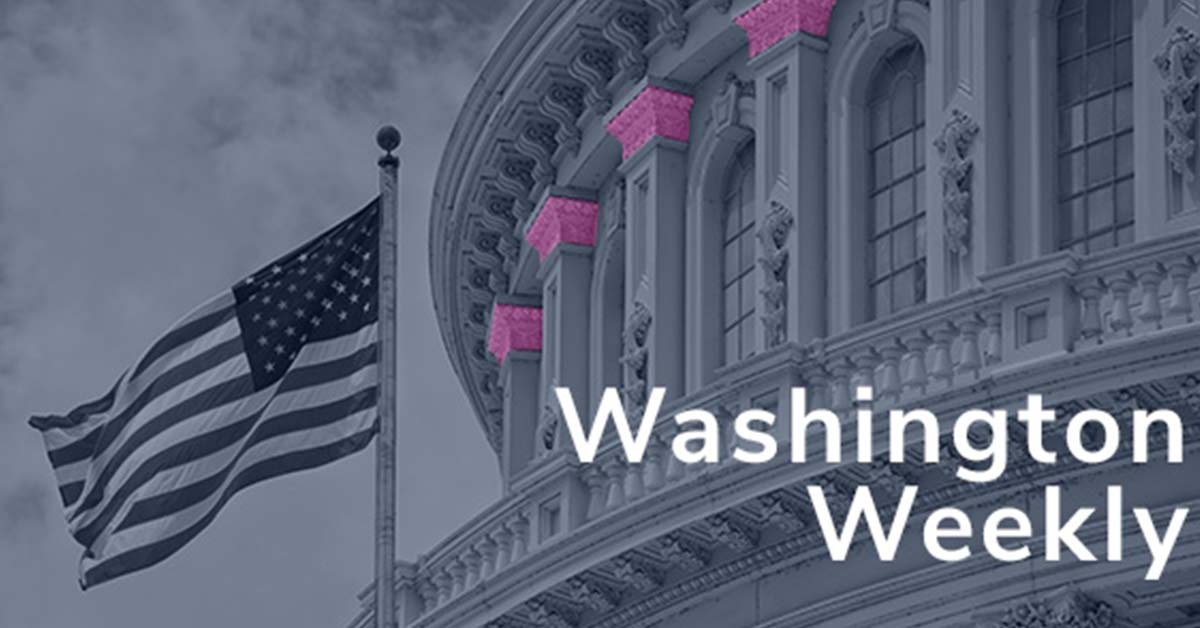
The House
As Senate leaders continue to negotiate bipartisan infrastructure, President Biden and Congressional Democrats are also constructing a social spending bill which includes items proposed by the President in his American Jobs and Families Plans that are not included in the bipartisan deal. At a proposed price tag of $3.5 trillion, the measure would be passed via the budget reconciliation process which requires a simple majority to approve it. All 50 Senate Democrats would need to approve the measure, and Vice President Harris would then need to cast the tie-breaking 51st vote.
As both infrastructure plans near completion, House Speaker Nancy Pelosi (D-CA) reiterated Sunday that the House will not pass the bipartisan infrastructure package until the $3.5 trillion reconciliation package is ready for passage. Sen. Rob Portman (R-OH), who is aiding the bipartisan package’s negotiations, signaled that Speaker Pelosi’s plan could derail the Senate package.
It will be difficult to convince all Senate Democrats and most House Democrats to pass the spending plan, thresholds necessary to use the reconciliation process. Reps. Lou Correa (D-CA) and Chuy Garcia (D-IL) have both insisted they will oppose the spending package unless it includes immigration overhauls, including a pathway to citizenship for unauthorized immigrants.
This week, the House will consider most of its FY2022 appropriations bills. Representatives will vote on seven bills early in the week (Agriculture-FDA, Energy and Water, Financial Services-General Government, Interior-Environment, Military Construction-VA, Transportation-HUD) and may consider three additional bills later in the week. This puts the House on track to pass 10 of 12 annual spending bills before the August recess. The two bills remaining would be Defense and Homeland Security measures.
Additionally, the House Oversight and Reform Subcommittee on National Security will hold a hearing on defending the U.S. electric grid against cyberattacks.
The Senate
Bipartisan infrastructure remains on the negotiating table. After Senate Majority Leader Chuck Schumer’s (D-NY) test-vote failed last week, negotiating Senators are hopeful the $589 billion package can be finished prior to the August recess. The five-week recess is extra motivation for bipartisan leaders. Unresolved issues include funding for highways and bridges, broadband, water, transit, creating an infrastructure bank, the amount of unspent COVID relief money to be repurposed, and the Republican proposal to waive the Davis-Bacon Act, which requires federally funded projects to pay wages no less than local prevailing wages.
Senate Democrats and the White House made an offer on Sunday that covered all outstanding issues. Senate Republicans have rejected that offer, a source indicating that it reopened several previously agreed-upon issues. Senators want to move infrastructure forward before the August recess, so it can focus on preventing a government shutdown and debt ceiling default in the Fall.
Police reform negotiations are still underway. Sen. Tim Scott (R-SC) indicated there is consensus around changing issues like chokeholds, the militarization of police, and no-knock warrants. He also emphasized that allowing lawsuits against individual officers is bad policy, reflecting a similar policy outlined by Sen. Cory Booker (D-NJ) which detailed lawsuits issued against police departments and not individual officers.
The Administration
As spending increases, extending the debt ceiling will become a priority for Democratic leaders in both chambers. This week, the Treasury Department will begin taking measures to avoid breaching the debt limit, but Treasury Secretary Yellen has warned lawmakers that the Treasury will be close to running out of funds after Congress returns from its August recess. Budget reconciliation will, once again, enter the picture. Democrats can increase the debt limit via budget reconciliation without any Republican votes; however, many Democrats are hesitant to do so and would, instead, prefer to make this a bipartisan agreement.
Concerns of the debt limit will soon ride along-side current inflation concerns. Republicans argue that continued government spending caused dangerous and avoidable inflation. Republicans maintain that President Biden’s American Rescue Plan, a $1.9 trillion plan passed in March 2021 via reconciliation, is the main cause of the current inflation rate.
President Biden has alternatively affirmed that (1) although prices may initially rise, they will ultimately fall, and (2) the spending under these extraordinary circumstances was necessary and will not cause long-term, dangerous inflation. The question to answer is whether the current inflation is a result of the influx of relief money or due to shortages of essential resources. That debate will likely continue in the Administration and Congress as the reconciliation spending plan and the bipartisan infrastructure package’s pay-fors are negotiated.
Deputy Secretary of State Wendy Sherman is visiting China this week. China reportedly lashed out against U.S. policies in a meeting and declared the two countries to be in a “stalemate.” Though talks were contentious, the two countries left open the possibility of a summit between their respective presidents.
Becker’s Federal Lobbying Team will continue to monitor these developments as they evolve and will share with you as soon as information becomes available.